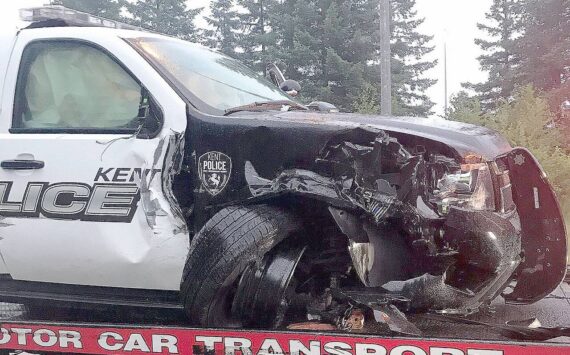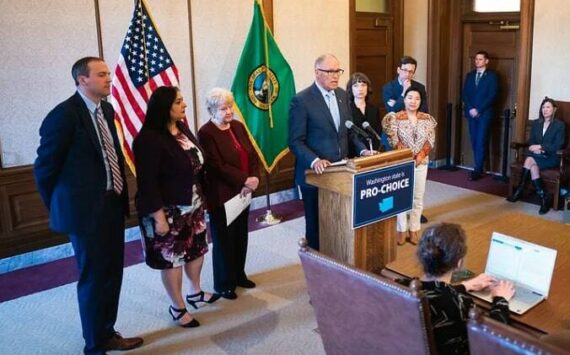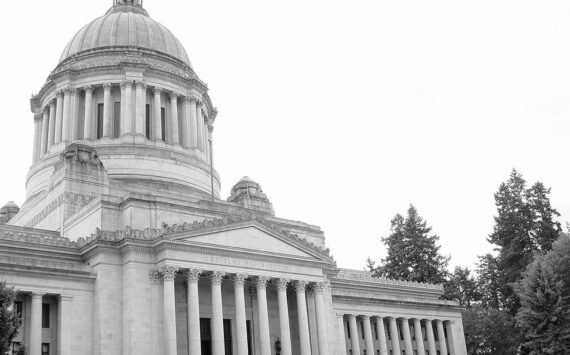Democrats went to bed Tuesday night confidently declaring their party will control the levers of legislating in state government by the end of the month.
Their mood of certainty stems from seeing Democrat Manka Dhingra comfortably ahead of Republican Jinyoung Lee Englund in the very special and extraordinarily expensive election for an open state Senate seat in the 45th Legislative District in King County.
Dhingra led Englund by nearly 11 points, 55.4 percent to 44.6 percent in the initial vote tally. While the margin may shrink in the coming days of ballot counting, Dhingra is on her way to winning and, following certification of results Nov. 28, getting sworn into office.
That will give Democrats a 25-24 advantage in the Senate, joining a Democratic majority in the House and a Democratic governor, Jay Inslee. It’s a political trifecta that now exists in only seven other states.
Inslee and Democratic lawmakers are not shy about their desire to try to strengthen gun control laws, toughen environmental regulations, expand abortion rights, broaden voting laws and design a means for taxing carbon emissions.
And there is chatter about amending the education funding law passed this year, including crafting new terms for use of local levies and a potential slimming of the statewide property tax increase.
Those are all issues for the 60-day session in 2018.
But there is unfinished business from the 2017 legislative marathon they need to address as well, chiefly acting on a capital budget and a Hirst fix, and maybe a little relief for payers of Sound Transit car tabs.
Democrats are trying decide if those tasks can be done in a special session next month and if there’s risk in trying.
Theoretically, Democrats could use the muscle of their majorities to push through a House proposal on Hirst to impose a 24-month timeout on changes in water rights rules required under a 2016 Supreme Court decision. And Inslee could sign it.
With a similar approach, they could push through a rebate plan for car tabs and a blueprint for the capital budget.
Then comes the potential snag. A 60 percent majority is required in the House and Senate to authorize the sale of bonds for the capital budget. That means Democrats will need a few Republicans to vote to approve the bonds.
It won’t be easy to find them.
The GOP-led coalition has held power in the Senate for five years because they lock arms in unity when they need to most. When they do, Inslee and Democrats cry foul and accuse them of obstruction.
Right now, Republicans are demanding a solution on Hirst before they’ll provide the votes for a capital budget bond bill.
Which brings us to the dilemma facing Democrats all agog with Manka Dhingra’s election night performance.
A few Democratic lawmakers from the deep-blue enclaves of the Puget Sound want to move swiftly to use their power to force the issue and test the GOP resolve.
There are a few cautious souls in their ranks as well. If enough Republican lawmakers don’t budge on the bond bill it will foil the effort to pass a capital budget. Democrats would blame the GOP but couldn’t escape criticism either.
With small Democratic majorities now—two seats in the House and one in the Senate—it may be too risky a maneuver. Next year all the seats in the House and most in the Senate—including the same one in the 45th—are on the ballot.
A misstep in December could benefit Republicans next November. And many Democrats are feeling too good right now to want that to happen.








